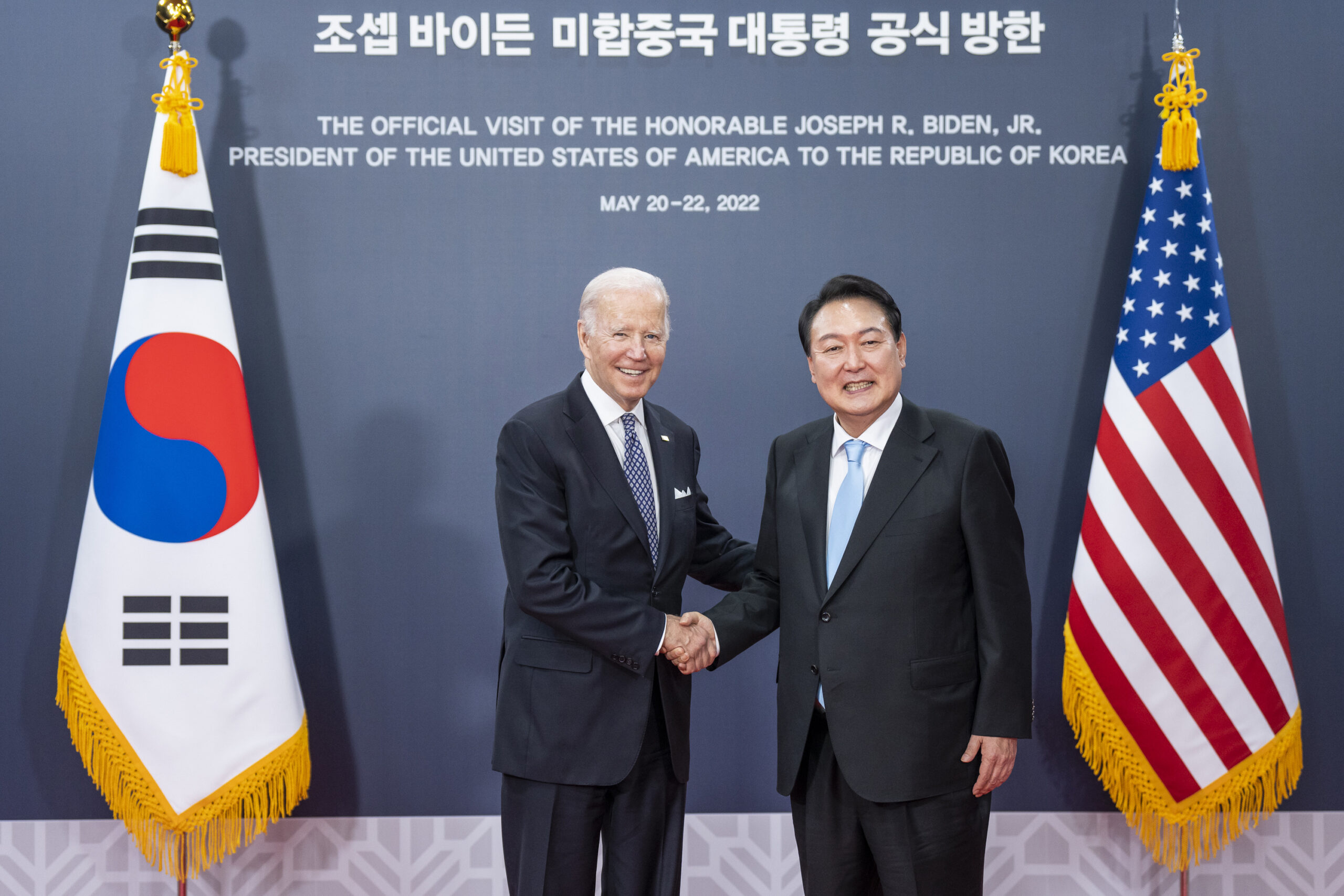From the first days of its establishment, South Korea’s government has been haunted by political scandals that have shaken the nation to its core. Presidents once hailed as heroes of independence became symbols of corruption and authoritarian rule. What begins as a struggle for democracy often devolves into a fight for power, leaving behind a trail of scandals, impeachments, and broken trust. How did a young democracy, born from the ashes of war, fall victim to the very forces it sought to overcome? Throughout South Korea’s contemporary history, there have been cases of political scandals involving the president, ranging from coups to bribes. These events leave a lasting impact on the country’s history. The most recent failed coup attempt by President Yoon reiterates this pattern, and sent shock waves globally and domestically.
The Republic of Korea was created on August 15th, 1948, the first National Assembly, made up of 198 members, put the Constitution into effect on July 17th of the same year. Syngman Rhee and Yi Si-Yeong, previously independent fighters, grew popular among the Korean populace, later becoming the first president and vice president of South Korea, respectively. During his term, Syngman Rhee underwent many scandals, including corruption, repression against his left-wing opponents, and the creation of amendments to the Constitution to enable his dictatorship. President Rhee was forced to resign due to protests against his attempts to extend his term. More recent examples include President Lee Myung-bak, who in 2018 was sentenced to 17 years in jail for corruption charges, including bribery allegations involving the then-CEO of Samsung, Lee Kun-hee, and in 2016, President Park Geun-Hye who was charged with taking bribes from conglomerates like Samsung and was impeached immediately. While these controversies have no linkage with President Yoon’s failed martial law attempt, there seem to be cases of presidents betraying the people’s trust.
President Yoon Suk Yeol was elected on March 9th, 2022, as the 20th president of South Korea. Before taking office on May 10th, Yoon Suk Yeol was a prosecutor for 26 years, combating corruption, — even specifically dealing with past Korean presidents. President Yoon of the People Power Party (PPP) suffered a major setback in the April 10 legislative election, two years into his five-year term, as the Democratic Party won 192 seats while the PPP secured only 108. This loss marked a significant blow to President Yoon’s power, who from then on was constantly fighting the opposition party when establishing specific authoritative tasks, such as reforming and lowering the tax rate, new housing and other major infrastructure projects, and educational reforms. A range of events transpired which lowered the popularity rating of President Yoon; most notable is the authorities handling the Itaewon crowd crush that killed 159 people in October 2022—shifting the blame of the large death toll to drug use. Furthermore, early signs of authoritarian tendencies, such as raids of media offices and journalist homes whose coverages of events were unfavourable to the party’s popularity.
The Coup attempt by President Yoon on Dec. 3, 2024, was motivated by a myriad of reasons, one of which was the loss of power his party held in the National Assembly. However, President Yoon’s primary assertion for the coup was the threat of “pro-North Korean anti-state forces,” as he claimed the rising influence of North Korea was a significant issue. More and more missile tests are being conducted yearly in North Korea, with 2022 seeing 64 successful tests and the involvement of North Korean troops in the Ukraine-Russia war. Additionally, many global news outlets put North Korea as one of the significant factors in the start of the coup attempt itself. However, President Yoon’s remarks about “Pro-North Korean anti-state forces” did not refer to the actual threat to North Koreans, such as missile tests or military involvement abroad. Instead, it was the threat of anti-state forces within South Korea that he saw as pro-North.
The civilian reaction to the coup had feelings of worry, shock, and confusion, with one woman believing South Korea would become North Korea. Protesters outside the National Assembly, which at the time was being blocked by the military, were chanting “no to martial law” and “strike down the dictatorship.” Lawmakers were part of the protests, trying to make it into the National Assembly. Most notably, Lee Jae-Myung, the opposition party’s leader, was seen climbing the parliament fence to vote against the president’s martial law, with the law’s order being cancelled 6 hours later.
While President Yoon survived a first impeachment vote on December 7th, ongoing protests and the opposition resubmitting impeachment motions seem to suggest that the overall popularity of the PPP will further decline. A second impeachment vote successfully occurred on December 14th, with the National Assembly voting 204-85 in favour, suspending his powers and duties as president. Until recently, there have still been rallies between rival and ally groups of President Yoon regarding his trial to remain as president.
This is an article written by a Staff Writer. Catalyst is a student-led platform that fosters engagement with global issues from a learning perspective. The opinions expressed above do not necessarily reflect the views of the publication.
Edited by Shihun Lee
4th Year McGill student pursuing an East Asian Studies major with a minor in Communications.

